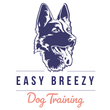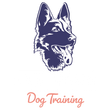Surviving the Sharknado: How to Handle Puppy Biting & Mouthing Like a Pro!
Puppy Biting & Mouthing: What to Do and What to Avoid
Puppy biting and mouthing might feel like living with a furry little shark, but rest assured—it’s a normal part of their development! Puppies explore the world with their mouths, and understanding why they bite is the first step to help with your frustration, the good thing is…..it is a phase!
Here’s the scoop on why puppies bite and how you can guide them through this stage:
Why Do Puppies Bite?
-
Teething Troubles:
Just like human babies, puppies experience discomfort as their new teeth come in. Chewing helps relieve the pain and soothe their gums. -
Exploration:
Puppies use their mouths to investigate the world. Every texture, taste, and sensation is new and exciting, and mouthing is how they gather information. -
Play Behavior:
In the litter, puppies play by nipping and wrestling with their siblings. They don’t yet understand that human skin is more delicate than fur, so they’re figuring out what’s acceptable. -
Energy Release:
Puppies have bundles of energy, and mouthing often becomes an outlet when they’re feeling overstimulated, tired, or simply bored. Witching hour!!! -
Attention-Seeking:
Puppies learn quickly that biting or nipping grabs your focus. Even a reaction like yelping or pulling away can encourage them to do it again.
What To Do
-
Provide Appropriate Chew Options:
Make sure your puppy has access to safe and durable chew toys to redirect their biting. Freeze toys or wet cloths to help soothe teething pain. Don’t leave them out all the time. Rotate them in so it keeps their interest! -
Teach Bite Inhibition:
-
If your puppy bites too hard during play, let out a calm but clear “Ouch!” or “All done” and stop play immediately.
-
Give them a short timeout (30-60 seconds), then resume play. This teaches them that biting means fun stops.
-
Redirect to Toys:
Always keep toys within reach! If your puppy starts biting your hands, gently replace your hand with a toy. Praise them when they chew the toy instead. -
Use a House Leash: *IMPORTANT!
Attach a lightweight leash to your puppy indoors to prevent jumping up and grabbing at clothing or skin. This allows you to calmly guide them away from unwanted behaviours. Perhaps put them in their x-pen, or tether to a banister to give them a break. -
Reward Calm Behaviour:
Catch your puppy when they’re calm and relaxed. Reinforce this state with praise, treats, or gentle affection so they learn it’s rewarding to be mellow.

What to Avoid
-
Don’t Use Your Hands as Toys:
Wiggling fingers in front of their face might seem fun, but it encourages biting. Stick to toys for playtime. -
Don’t Punish or Yell:
Harsh reactions can scare your puppy, break trust, or even escalate their biting. Calm and consistent redirection works best. -
Avoid Encouraging Rough Play:
Wrestling, tugging at clothing, or chasing games that amp up excitement can lead to more mouthing and nipping. -
Don’t Overreact:
Dramatic reactions, like yelping too loudly or pulling your hand away quickly, can excite your puppy and turn biting into a game.
Pro Tips for Success
-
Structure Playtimes: Puppies need plenty of opportunities to play and release energy, but balance this with calm activities like training or snuffle mats to engage their brains.
-
SLEEP!: Puppies under six months of age need 15-17 hours of sleep per day. Overtired puppy = sharknado
-
Enrichment is Key: Puzzle feeders, treat-dispensing toys, licky mats and frozen Kong toys are great for keeping their minds and mouths busy.
-
Be Patient: Puppies are learning and growing. With consistency and positive reinforcement, they’ll outgrow this phase and learn appropriate behaviours.





Leave a comment